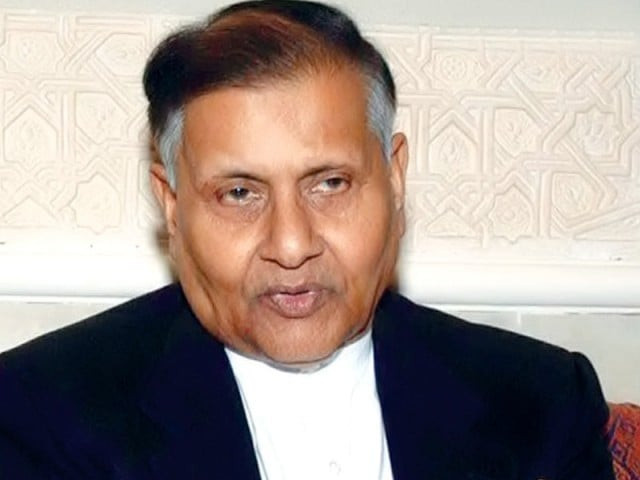Former army chief rules out military intervention in political affairs
A section of opposition parties has misunderstood the current political situation, says Gen (retd) Mirza Aslam Beg

A file photo Gen (retd) Aslam Beg. PHOTO: FILE
“The army is not in a position to interfere in the political affairs of the country as it is already engaged in a fight against terrorism,” he stated in an article “Current Political Conflict and National Ideology”, which was released to the media on Thursday.
The ex-army chief said a section of opposition parties have misunderstood the current political situation by assuming that the army would interfere in the political affairs after a nod from a third country.
Former army chief sees 'foreign conspiracy' behind Panama leaks
“Army understands that the system, which has already weakened, would further wither away as a result of its intervention,” he maintained.
Gen Beg urged the political leadership of all parties to frame terms of reference (ToRs) to probe the Panama Papers leaks with mutual consultations and consensus to steer the country out of current political uncertainty.
Doctrine of necessity no more
The former military head further argued that the judiciary had already buried the doctrine of necessity after realising that it had been providing constitutional umbrella to the military governments under the doctrine in the past.
Gen Beg referred to a recent statement by Chief Justice of Pakistan (CJP) Anwar Zaheer Jamali who, he said, has advised to strengthen the existing system in the interest of the country’s survival.
“Any attempt to topple down the incumbent government with political pressure and confliction will have extremely dangerous repercussions,” he warned.
Imran Khan sees Panama Papers as second chance to oust PM
According to him such situation would not even help in the creation of another country like Bangladesh, adding that because Bangladesh, before its birth, was geographically located near secular countries like India, while Pakistan, in terms of location, is close to two Islamic states, revolutionary Iran and revolutionary Afghanistan and both countries have an impact on Pakistan.
Possibility of a civil war
The ex-army chief pointed out that a particular hardline religious group, which already exists in the country, is presently not active as it has distanced itself from the current political bickering.
He, however, said such hardline groups would go out of control in case they became active in the prevailing political scenario. “Their active role would pave the way for an intervention by the neighbouring countries which would result in a civil war that would be worse than the 1965-66 Indonesian Massacres. Such a civil war might culminate in a Yugoslavia like situation in Pakistan.”
Calling for accountability: ‘Our rulers are sacred cows that can’t be questioned’
Perhaps our enemies are also hatching conspiracies towards those directions, the ex-military chief observed. “We should keep in our mind the fate of many Muslim countries, such as Afghanistan, Libya, Iraq, Syria, Yemen and Somalia.”
Military leadership to thwart conspiracies
While the former COAS said foreign powers were targeting Pakistan because of its nuclear technology, he upheld that the leadership of armed forces and intelligence agencies were fully aware of those plots.
“Keeping in view such conspiracies the armed forces have advised politicians to resolve their disputes with mutual consultations,” he added.
Further, Gen Beg, who has time and again termed Panama Papers a conspiracy, reiterated that the politicians must frame ToRs with consensus not only to punish the offenders but also to expose the conspiracy by the enemies.
CII authorised to issue Fatwas on any issue: Maulana Sherani
Reforms in CII
In order to save the national ideology of the state, the former army chief recommended drastic changes in the present structure of the Council of Islamic Ideology (CII), a constitutional body which advises the legislature on Sharia compliance, through Parliament.
“The head of CII should be elected by parliament and he should not be a religious cleric but a moderate, religious and educated person should replace the present head of the council,” he suggested.



















COMMENTS
Comments are moderated and generally will be posted if they are on-topic and not abusive.
For more information, please see our Comments FAQ